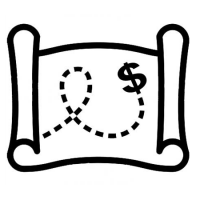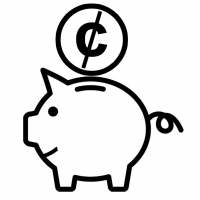EPISODE 23 ~ FIND YOURS: Foreclosure: Find Out If The Bank Owes You An Overage For Your Home
I want to talk about a pocket of money that’s small and yet big. I’m referring to unclaimed money created when somebody loses a home.
It’s small, because, thankfully, this is a fairly rare occurrence statistically and yet big because real estate is a high-dollar game.
There are usually two ways that people lose their homes. The first, of course, is if you get behind on your mortgage and the bank forecloses on the home. You may think it’s a total loss, but here’s the key: if the bank was able to sell your house for more than you owed in back mortgage payments, that overage belongs to you. You should check public records of what the house sold for and get in touch with your former lender if it sold for more than you owed.
The second way to lose your house is if you couldn’t or didn’t pay the property taxes. In that case someone else may buy what’s called the “tax lien” and take over your house. It’s shocking but there is a possible silver lining. If the new owner paid more for the tax lien than you actually owed, then YOU are entitled to that money. Check with the department of taxation in whichever county or city the house is located.
Given all of the people who struggled in the economic meltdown of 2008 and beyond, there could be a lot of missing money from lost homes out there, so spread the word.
EPISODE 15 ~ EASY MONEY PODCAST
EPISODE 15 ~ SAVE MORE: PMI: Petition To Drop Private Mortgage Insurance and Save BIG
Private mortgage insurance isn’t for you. It protects the lender in case you stop paying your mortgage. Lenders are required by law to stop charging you for private mortgage insurance when you have 22% equity in your home, but some have been known to conveniently forget.
To complicate things, if you reach 22% equity not through payments, but because real estate prices have gone up, and your house is now more valuable, you’re going to have to prove your case. The key is to ask your bank what proof it requires. You may have to gather comparable sales figures for other homes sold recently in your neighborhood or you may need to hire an appraiser to determine the new value of your home. Whatever it is, Do it!
Dropping PMI is worth it. PMI varies, but it often costs about 1 percent of the original loan amount —PER YEAR. So if your total mortgage was $500,000, you could be paying $5-thousand dollars —a year— in private mortgage insurance. Ouch. Of course, dropping PMI in this example saves you 5-thousand dollars a year —And that’s EVERY year— for the rest of the years you have that loan.
But, there’s a way to roll this savings into another strategy that saves you even more money! When your bank drops the PMI premium, keep paying that amount –but instead of paying it toward PMI, put it toward paying extra toward your mortgage principal. You are used to paying this amount anyway, so it’s a great painless strategy. Paying extra toward the principal on your loan saves you money, because soon there’s less principal to charge you interest on. You also end up paying your loan off early.
Let’s say your PMI payment was $100 a month on a $225,000 loan. If you prepaid that $100 a month —just a hundred dollars— as extra toward your mortgage principal each month, you would save $24-thousand dollars over the rest of the loan. That is the power of reverse compounding and it is one of my favorite save BIG strategies.


